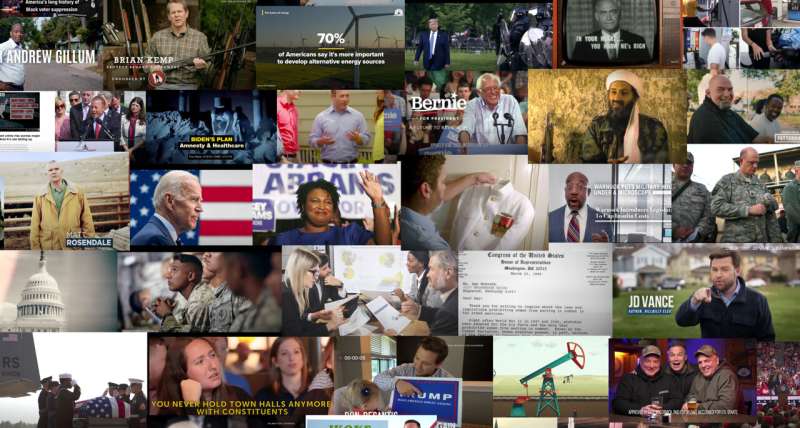Media messages that humanize outgroups don't combat prejudice, study finds

It seems intuitive: if you want to soften hearts toward marginalized people, show that they are human like everyone else. That's the theory behind untold media messages depicting "outgroups" having relatable experiences, such as images of immigrants eating Thanksgiving dinner or videos of refugees hugging their children.
Unfortunately, humanizing messages do almost nothing to increase empathy in people with high animosity toward an outgroup, although they do increase empathy in those who already view the group positively, according to new BYU research published in the Journal of Politics.
"Humanizing messages have been activists' main approach to reducing prejudice throughout the world, in conflict resolution groups, documentaries, refugee organizations," said BYU political science professor Joshua Gubler. "People think they're being effective, but that's because they're preaching to the choir, and the choir responds appropriately. There's value in rallying a base, but that is different from changing the minds of those the messages are designed to target."
For the study, researchers first surveyed 3,498 Republicans in the western U.S. about their attitudes toward Latinx immigrants, then surveyed their attitudes again after they watched clips from a documentary designed to put a face on immigrants. After seeing the documentary, all the participants were more likely to view the immigrants as human, but only those previously well-disposed toward the immigrants became more empathetic.
The researchers speculated that dissonance—the unpleasant emotion of realizing a belief that has shaped our worldview is potentially incorrect—prevented those ill-disposed toward the immigrants from empathizing.
"Dissonance challenges our sense of self, and most people are loathe to pay the cost of confronting it. We wondered if, when convinced by the documentary that immigrants were human and not mere stereotypes, some participants became uncomfortable and their discomfort negated the empathy they might otherwise have developed," Gubler said.
To test their hypothesis, the team designed a second phase of the experiment with 1,982 participants. This time, after showing heartwarming images of Latinx people and confirming that the photos had a humanizing effect, they told half of their participants that the immigrants were documented and half that they were undocumented. They then asked all the participants to affirm in writing that they agreed with a list of statements describing the immigrants' positive attributes.
Compared to those with low initial animosity towards immigrants, participants with high initial animosity were about three times more likely to report dissonant emotions after this task and significantly less likely to report empathy. Dissonance accounted for 23% of their lower empathy levels.
"Dissonance was a significant predictor unchanged attitudes," Gubler said. "The traditional thought is that you go from humanizing to empathy to changed attitudes—this study suggests why many attempts to do that fail."
So if humanizing doesn't work to reduce prejudice, what does? Answering that "million-dollar question" is the research team's next focus, Gubler said. He outlined two possible approaches they are exploring to manage dissonance in conflict resolution.
One option is to avoid generating dissonance altogether by asking people to reflect and write about the positive encounters they've had with outgroups, even if they can find just one or two good things to say. "Since it's their own experience and woven into their psyche already, they are unlikely to have the dissonant kick-back," Gubler explained.
The other potential strategy is to tell people upfront that they're likely to feel dissonance, normalize the discomfort and encourage them to work through it rather than avoid it.
"People are often unconscious of how dissonance affects them, how it can block empathy," he said. "When we make it conscious for people, it allows us to discuss dissonance as an opportunity for learning."
More information: Joshua R. Gubler et al, Changing Hearts and Minds? Why Media Messages Designed to Foster Empathy Often Fail, The Journal of Politics (2022). DOI: 10.1086/719416
Journal information: Journal of Politics
Provided by Brigham Young University




















